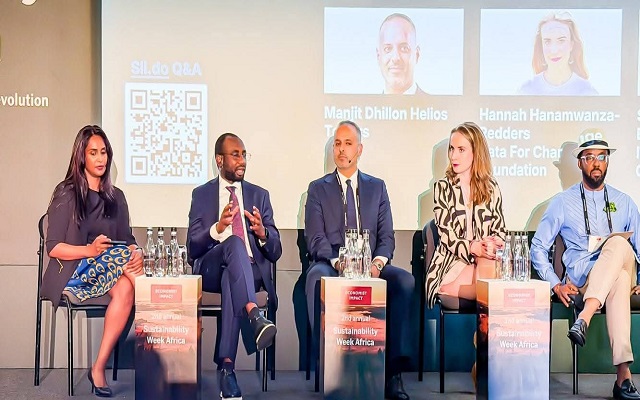The Director General of the National Information Technology Development Agency (NITDA), Kashifu Inuwa, has underscored that Africa’s economic independence and future prosperity depend on its ability to build and control its own computing capacity, the digital foundation for sustainable transformation, job creation, and intra-African trade.
Speaking at the 2nd Annual Sustainability Week Africa held at The Westin, Cape Town, South Africa, Inuwa asserted that robust investment in local digital public infrastructure (DPI) is the critical step for unlocking lasting growth and positioning Africa competitively in the global digital economy.
“In the 21st century, compute power is a primary factor of production, and we cannot rely on exporting our raw data to other regions to process it and build products for us,” he averred.
The high-profile event, which convenes leaders across government, business, and civil society, serves as a continental platform for sharing practical strategies for green growth and digital transition. The 2025 edition focused on Africa’s role in driving energy transition, climate resilience, and sustainable development.
During a panel session themed “Digital Infrastructure for Jobs and Trade in Africa”, Inuwa highlighted the urgent need for the continent to develop indigenous computing infrastructure as the foundation for digital independence.
He noted that while artificial intelligence (AI) offers Africa an opportunity to leapfrog development, it must be backed by adequate compute power to sustain innovation.
Drawing parallels with Europe’s collaborative model of developing high-performance supercomputers and AI factories, the NITDA boss called on African governments to create policy incentives that attract private sector investment in digital infrastructure.
He explained that digital public infrastructure operates on two levels: the shared physical and technical layer, including connectivity and cloud capacity; and the functional layer, encompassing digital identity, payment systems, and data exchange platforms that enable seamless access to services.
Citing Nigeria’s progress, Inuwa revealed that over 130 million Nigerians have now been enrolled under the national digital identity system, while work is ongoing to establish a national data exchange platform and a DPI Centre of Excellence to promote interoperability and best practices across all tiers of government.
“The Minister of Communications, Innovation, and Digital Economy in Nigeria, Dr Bosun Tijani, is leading and pushing for establishing a DPI Centre of Excellence, where we can have people building the actual DPI data exchange well, building APIs, and also coming up with best practices,” he disclosed.
Inuwa noted that Nigeria’s evolving digital ecosystem could serve as a model for other African nations, stressing the importance of developing an “African-built DPI” tailored to local realities rather than relying on imported systems.
On digital literacy, the NITDA DG reaffirmed Nigeria’s commitment to achieving 95% digital literacy by 2030 and 70% by 2027, under the National Digital Literacy Framework.
He revealed that digital skills have now become compulsory for students and civil servants, while partnerships with organisations like Cisco and the NYSC are helping train youth, women, and market traders in the use of digital tools and AI-powered applications.
He also emphasised the need for clear policy frameworks to guide AI adoption and technology development across Africa, describing digital transformation as “not a sector, but an enabler of every sector of the economy.”
“In Africa, we need to have our digital circuits by building our own capacity for digital self-determination. We should not rely on other countries to be sending hardware and software to us because our goal is to build a better life for our citizens, and technology will help us achieve that,” he noted.
Concluding his remarks, Inuwa called for stronger collaboration among governments, the private sector, and development partners to harmonise digital standards and scale innovation across the continent.
“Africa’s advantage lies in our ability to leap, to build collaboratively, and to design technology for inclusion. If we build the digital rails together, our youth will drive Africa straight into the heart of the global digital economy,” he said.

